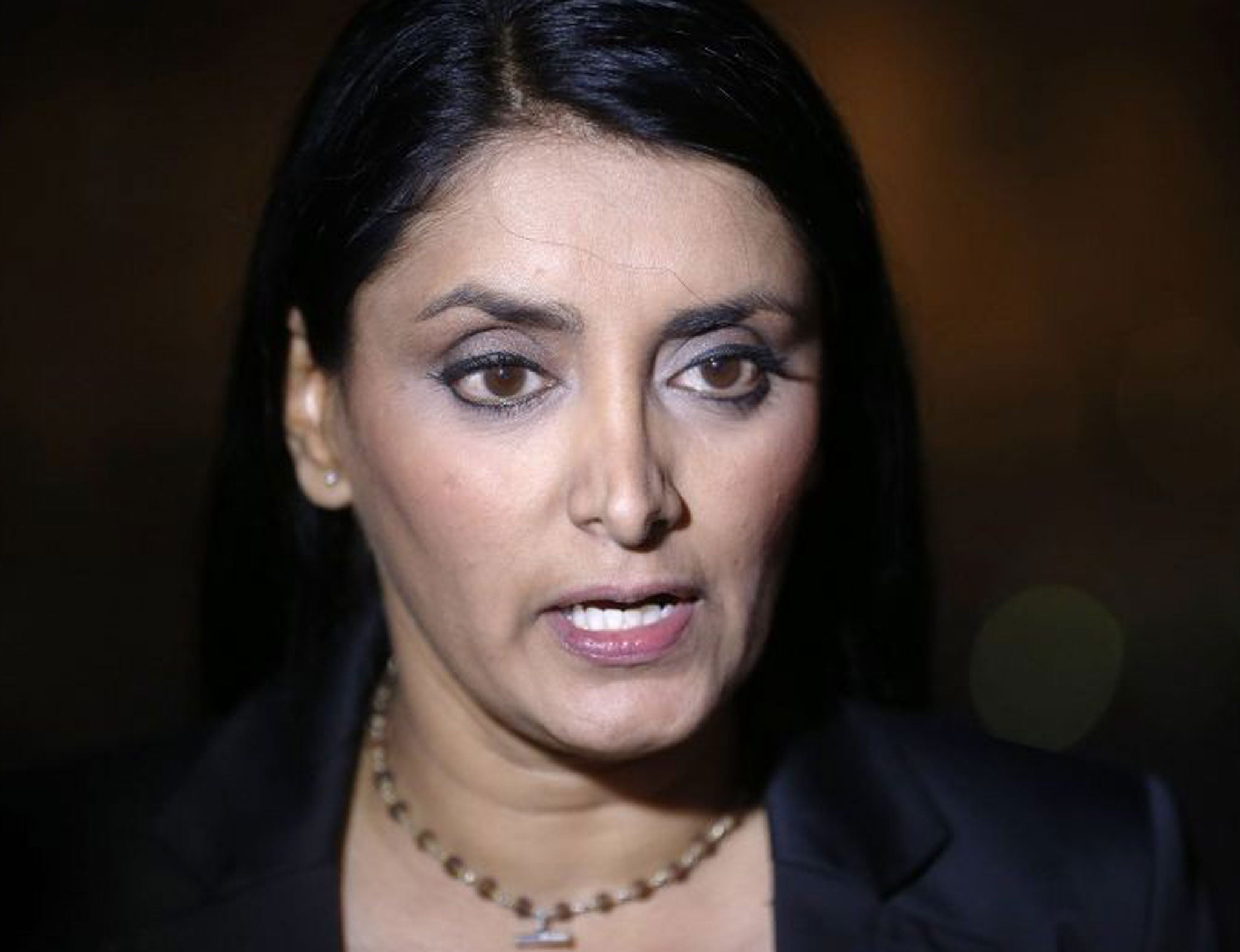London 'slaves' case: Aneeta Prem asks 'do we know what's happening next door?'
Charity founder says the women thanked the charity for 'saving their lives'

The woman instrumental in releasing three women from 30 years of alleged slavery in a south London home has said it doesn't surprise her that such a case can be uncovered in London.
Aneeta Prem, a magistrate and founder of the Freedom Charity, said the home the women lived in was “an ordinary street in an ordinary place in London.”
The alleged captives - a 30-year-old Briton, a 69-year-old Malaysian and a 57-year-old Irish woman - were released from the Lambeth home by police and workers from the charity several weeks ago. They were said to be “deeply traumatised.”
And yesterday a couple, both 67, were arrested on Thursday, suspected of involvement in forced labour and domestic servitude. They have also been arrested on suspicion of immigration offences, and bailed until January.
Scotland Yard said they were previously arrested in the 1970s, but no further details were released.
Detective Inspector Kevin Hyland, who is leading the investigation, said the women’s alleged servitude was three times longer than anything seen before by police, and that they had launched an “extensive investigation.” The youngest of the alleged victims is thought to have been in the house all her life.
Speaking to ITV's Daybreak on Friday, and asked if she could believe such a situation could arise in London, Ms Prem said: “Sadly, yes I can believe that this could happen in London.
“If we think about our lives, where we're so busy rushing around - do we know our neighbours? Do we know what's happening next door?
“It's an ordinary street in an ordinary place in London; there's nothing extraordinary about where they were held, and nobody seemed to know anything about it.”
She did though insist that she is still “very proud to be a Londoner.”
One of the “slaves” made initial contact with the charity, calling them after seeing Ms Prem on TV. A series of secret phone calls were used to build up a rapport with the women before the rescue. Ms Prem recounted the story of when she met the women, and they thanked the charity for “saving their lives.”
“When I met them,” she said, “it was a very humbling experience. They all threw their arms around me, and apart from crying enormously, they thanked the charity for the work Freedom had done in saving their lives.
“When we relayed back to the call centre that they were out, that they were on the pavement, the cheers could be heard around London. There was a lot of crying and it was incredibly emotional.”
The charity is now working with the women on the “difficult journey” of building lives back in normality.
Ms Prem said: “If you have spent your entire life in captivity and know nothing different, then even the smallest freedoms, the smallest things, you have no knowledge of.
“It's going to be a difficult process. Bear in mind these ladies have left with absolutely nothing at all. The charity is going to have to try and help and support them through this difficult journey.”
David Cameron's official spokesman said the Prime Minister regarded the case as "utterly appalling," and highlighted a current bill which the Government hopes could battle the kind of servitude which is alleged.
He said: "The importance of this issue and the importance of ensuring that, where it is occurring, it is brought into the open is exactly why the Government is taking through the House the modern-day Slavery Bill."
The bill, as unveiled by Home Secretary Theresa May at the Conservative Party conference in September, includes tough new sentencing plans for human traffickers, and will introduce Trafficking Prevention Orders to restrict the activity and movement of convicted traffickers.
Home Office Minister James Brokenshire, who is overseeing the bill's parliamentary passage, told BBC Radio 4's Today programme: "This is extraordinary, it's utterly shocking to hear the details that have emerged over the course of the last 24 hours.
"Slavery is one of those issues which people felt had been consigned to the history books. The sad reality is that it is still there. We have seen increases year on year in the number of cases reported, and I expect that will continue to increase."
